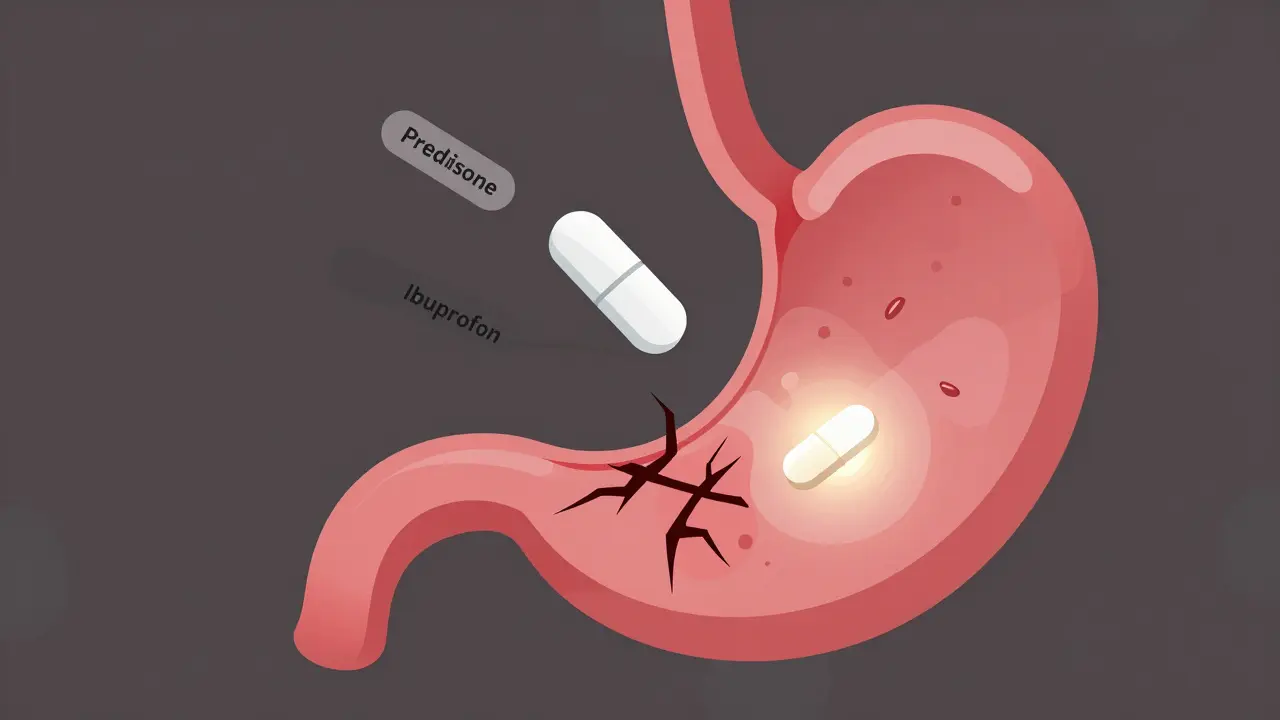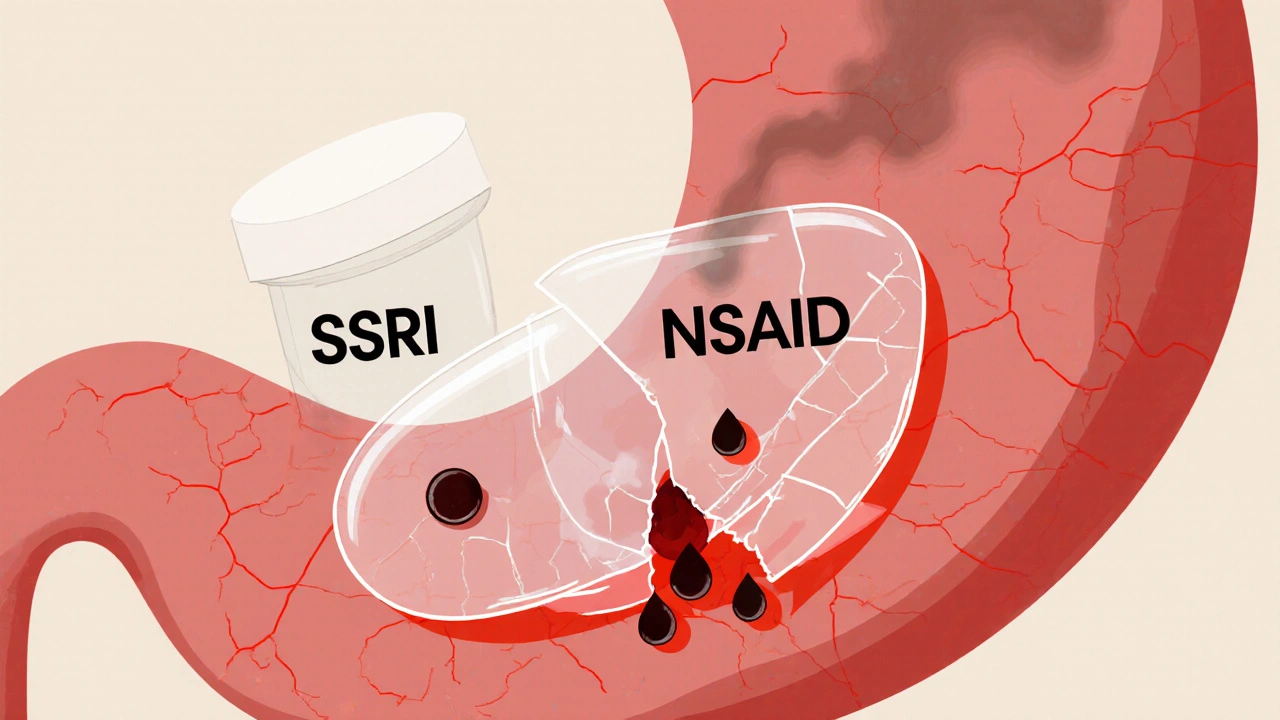GI Bleeding Risk: What Medications Increase It and How to Stay Safe
When you take a medication, you expect relief—not a trip to the ER because your stomach started bleeding. GI bleeding risk, the chance of internal bleeding in the stomach or intestines due to medication, injury, or disease. Also known as gastrointestinal hemorrhage, it’s not rare, and many people don’t realize their daily pills could be the cause. This isn’t just about old-school ulcers. Today, it’s often linked to everyday drugs you might be taking for pain, heart health, or inflammation.
Take NSAIDs, nonsteroidal anti-inflammatory drugs like ibuprofen and naproxen used for pain and swelling. They’re everywhere—over the counter, in combination pills, even in some cold remedies. But they block protective enzymes in your gut lining. One study found that regular users had up to a 4x higher chance of GI bleeding than non-users. Then there’s anticoagulants, blood thinners like warfarin and rivaroxaban prescribed to prevent clots. These save lives after strokes or surgeries, but they make any tiny tear in your digestive tract more dangerous. Even proton pump inhibitors, drugs like omeprazole used to reduce stomach acid, which are supposed to protect your stomach, can sometimes mask bleeding symptoms until it’s too late.
It’s not just about the drug itself—it’s the combo. Taking an NSAID with an anticoagulant? That’s a dangerous pair. Even adding aspirin for heart protection on top of other meds increases the risk. And if you’re older, have a history of ulcers, or drink alcohol regularly, your body doesn’t bounce back as easily. The scary part? Many people don’t notice the warning signs until they’re dizzy, weak, or passing black, tarry stools. By then, it’s an emergency.
What you’ll find in the posts below isn’t just a list of risky drugs. It’s real-world guidance on how to spot trouble early, which meds are safer alternatives, and how to talk to your pharmacist about your exact mix of pills. You’ll see how generic substitution laws affect bleeding risk with drugs like warfarin, how alcohol interacts with diabetes meds to worsen gut damage, and why boxed warnings on your prescription might have changed recently. This isn’t theoretical. It’s about the pills in your cabinet right now—and what you can do to keep your gut safe while staying healthy.
Combining steroids and NSAIDs can raise the risk of gastrointestinal bleeding by up to 12 times. Learn why this dangerous interaction happens, who’s most at risk, and how PPIs can prevent life-threatening complications.
Dec, 25 2025
Taking SSRIs and NSAIDs together increases your risk of dangerous GI bleeding by 75%. Learn why, who’s most at risk, safer alternatives, and how to protect yourself with proven prevention strategies.
Nov, 1 2025


